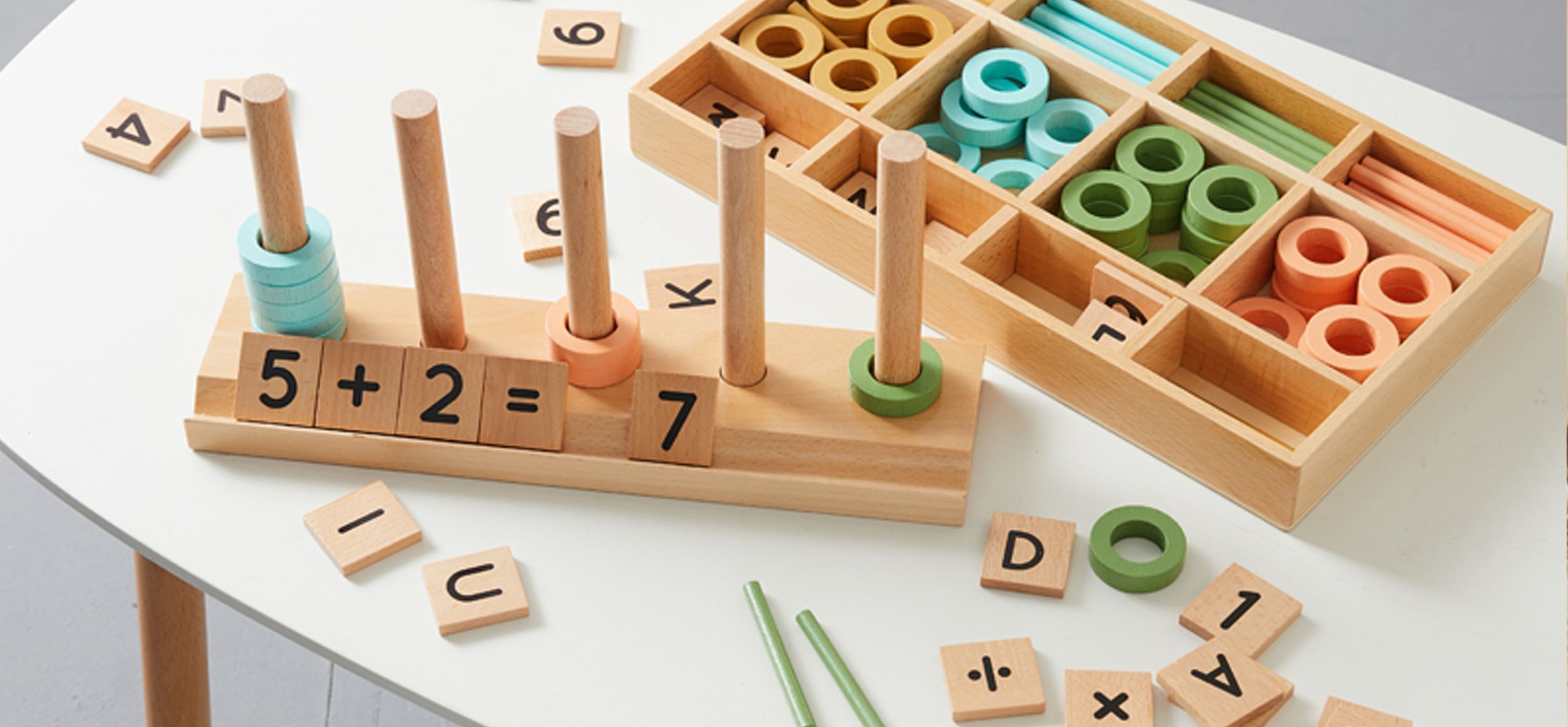
Ask An Expert
Supporting Your Toddler's Cognitive Growth: Activities to Try at Home
As a parent, you want to support your child's brain development from a young age. Cognitive activities for toddlers can help with everything from listening skills and teamwork to motor skills and attention span. Yes, kids between the ages of 1 and 3 are still learning to talk (and maybe even walk), but their brains are constantly taking in new information. Though your child's brain will naturally develop by simply absorbing the world around them, you can support their development with little games and activities.
Understanding Cognitive Development in Toddlers
Cognitive development in children starts before they're able to form words and toddle around. During the toddler years, a child's brain is rapidly forming and their thinking skills, language, problem-solving, and communication abilities are progressing every day.
If you're the parent of a toddler or spend lots of time with one, you'll see they seem to take in new words daily. By 18 months, a toddler absorbs up to six new words each day, and language really takes off around their second birthday.
It's not just language, though. Cognitive development is how young children make sense of the physical world, explore ideas, learn about cause and effect, interact with others, and get creative.
Many engaging activities and learning-based toys can help toddlers' mental development. We'll explore some of these below.
Engaging Cognitive Activities for Toddlers
Here are a handful of cognitive development activities you can try with your toddler:
- Looking at pictures. Whether with books, flashcards, or photos on your phone, looking at pictures with your child can help them recognize animals, colors, shapes, and everyday objects.
- Stacking objects. Stacking blocks or other objects not only helps young children with fine motor skills, but also teaches them about balance, gravity, and the basics of engineering and physics.
- Outdoor exploration. Spending time outdoors is a great way to make sure kids get exercise, but it can also help them understand the natural world. On a walk, at a park, or in your backyard, you can talk to your child about the trees, dirt, sky, or small animals you can hear or see. Being outside is also an opportunity to experience different temperatures, feel the wind blowing, or introduce the concept of weather.
- Reading. Reading is one of the best cognitive activities for children of all ages. Even before they can form complete sentences on their own, hearing words, taking in stories, and looking at pictures help them understand basic ideas, develop language, and work on their literacy skills.
- Simple counting. As young as 2 or 3, you can do simple counting activities with your child, like counting how many people are in a room, how many blocks are in a stack, or how many plates are on the table.
- Hide and seek. Hide and seek helps younger kids with quick thinking, memory, listening, basic strategy, attention span, spatial awareness, and problem-solving.
- Pretend play. Pretend play is anything imaginative, like zooming around the living room like an airplane, playing "house" with friends, or mimicking a doctor appointment with a parent or sibling as the patient.
- Songs and music. Singing simple songs and nursery rhymes like "The Itsy-Bitsy Spider" or "Twinkle, Twinkle, Little Star" can help toddlers with memory, rhyming, and rhythm. Playing almost any type of music can have a similar effect, whether in the car or at home.
- Questions and guessing games. Asking questions helps preschoolers develop their critical thinking, language, and communication skills. It could be as simple as, "Who lives in our home?" or "What is the weather like today?" You can also play guessing games, such as "I'm thinking of an animal."
Best Toys for Enhancing Cognitive Skills
Maisonette has a thoughtfully curated selection of toys and play sets that promote cognitive development in toddlers.
For children between 1 and 2, blocks, stuffed animals, dolls, sensory toys, and pop-up board books are excellent choices. The Dappy Puppy from Educating Amy is one of our favorites for this stage.
Toddlers up to 3 years old can do more building, creative, and artistic activities. The Follies Build & Draw and January Moon Build Your Own Sensory Necklace sets are perfect for this age.
Incorporating Cognitive Activities Into Daily Routine
With the right tools and ideas, you can support your growing child's brain development and help them thrive at every stage.
Simple daily actions like talking to your child, asking questions, reading to them, and pointing out colors in the world can help them make sense of their surroundings and build their speaking skills.
Understanding infant developmental milestones and activities like "What is pretend play?" and "What is cooperative play?" can also guide you in fostering their growth.
Toys and activity kits can also go a long way. Explore our mom-approved, cognitive-building toys and sets to see what's available.
Sources
Neumann D, Peterson ER, et al. (2021). The development of cognitive functioning indices in early childhood. Cognitive Development. doi.org/10.1016/j.cogdev.2021.101098
Harvard University Center on the Developing Child. (n.d.). InBrief: The Science of Early Childhood Development.
Wang L, Chen Y, et al. (2021). Trajectories of child cognitive development during ages 0–3 in rural Western China: prevalence, risk factors and links to preschool-age cognition. BMC Pediatrics 21, 199 doi.org/10.1186/s12887-021-02650-y
Brady KW and Goodman JC. (2014). The Type, but Not the Amount, of Information Available Influences Toddlers' Fast Mapping and Retention of New Words. American Journal of Speech-Language Pathology. doi.org/10.1044/2013_AJSLP-13-0013
Fernald A and Marchman VA. (2012). Individual differences in lexical processing at 18 months predict vocabulary growth in typically developing and late-talking toddlers. Child development, 83(1), 203–222. doi.org/10.1111/j.1467-8624.2011.01692.x